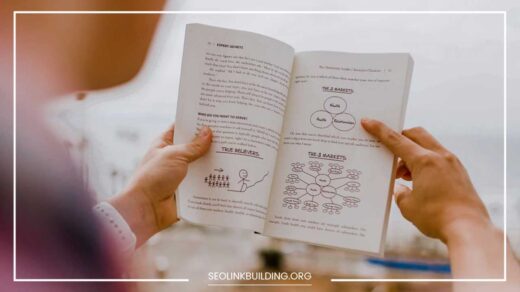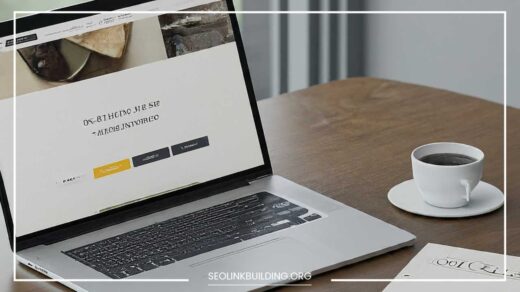Why Taking a Break Could Make Your Career

Why Taking a Break Could Make Your Career: A Guide to Recharging and Rebooting
In today’s relentless pursuit of professional achievement, the concept of taking a career break can feel like a radical act. We’re bombarded with messages glorifying the hustle, the relentless climb, the never-ending grind. But what if stepping away for a while was actually the key to unlocking your full potential?
The truth is, a well-planned career break can offer a surprising array of benefits. From boosting your mental well-being and reigniting creativity to acquiring new skills and gaining fresh perspectives, a break can be the secret weapon you need to reignite your passion and achieve greater success.
Why We Resist the Power of the Pause
So why are so many of us hesitant to take a break? Let’s delve deeper into some common obstacles:
- Fear of Falling Behind: The fear of being surpassed by colleagues who remain plugged in is a powerful deterrent. We worry that taking time off will leave us playing catch-up upon our return.
- Financial Concerns: A break often translates to a temporary dip in income, which can be a major roadblock, especially for those with financial dependents or significant debt.
- Lack of Support: Not everyone has a supportive work environment or social circle that encourages breaks. In fact, some workplaces might subtly (or not so subtly) discourage them.
- Negative Stigma: There’s an underlying cultural belief that equates taking a break with laziness or a lack of ambition. This outdated perspective can make it difficult to embrace the idea of a career hiatus.
The Science Behind the Break: How Stepping Away Makes You Stronger
Despite these concerns, there’s a growing body of research that highlights the positive impact of career breaks. Here’s how taking a break can empower you both personally and professionally:
- Combating Burnout: The Antidote to Exhaustion: Chronic stress and feeling overwhelmed are major contributors to burnout, a condition characterized by cynicism, emotional exhaustion, and reduced effectiveness. A break allows you to recharge your batteries, return with renewed energy, and avoid burnout’s negative impact on your work quality and performance. Studies by the Mayo Clinic have shown that burnout can lead to a variety of health problems, including depression, anxiety, and even heart disease https://www.mayoclinicproceedings.org/article/S0025-6196%2822%2900515-8/fulltext. Taking a break can be a crucial step in preventing burnout before it takes hold.
- Enhanced Creativity: Sparking Innovation from New Perspectives: When you’re constantly plugged into the daily grind, it’s difficult to generate new ideas. A break allows you to disconnect from the familiar and open yourself up to fresh inspiration and innovative approaches. Research published in the Journal of Experimental Psychology: Learning, Memory, and Cognition suggests that a change of scenery can enhance creativity by promoting divergent thinking, the ability to explore a wide range of possibilities https://evolve.elsevier.com/cs/product/9780323779319?role=student.
- Improved Focus and Productivity: Sharpening Your Saw for Maximum Efficiency: Returning from a break with a clear head and a positive attitude can significantly improve your focus and ability to get things done efficiently. Studies conducted by the University of California, Berkeley, have shown that taking short breaks throughout the workday can actually lead to increased productivity https://greatergood.berkeley.edu/resources/studies.
Beyond Relaxation: How Breaks Can Be a Catalyst for Growth
A career break doesn’t have to be passive. Use it as an opportunity to invest in yourself and propel your career forward:
- Skill Development: Expanding Your Toolkit: Learn new skills that can enhance your value proposition. Take a language course, attend workshops, or volunteer for a relevant organization. These experiences can broaden your horizons and make you a more attractive candidate to potential employers.
- Greater Self-Awareness: Discovering Your True North: Stepping away from the daily routine allows you to reflect on your career goals, values, and what truly motivates you. This self-discovery can help you make better decisions about your future career path. A study published in the Journal of Vocational Behavior found that individuals who engaged in self-reflection during career breaks experienced greater career satisfaction upon returning to work https://www.annualreviews.org/content/journals/10.1146/annurev-orgpsych-031921-024406.
- Renewed Passion: Falling Back in Love with Your Work: Sometimes, the constant pressure to perform can drain your passion for your work. A break allows you to rediscover your enthusiasm and approach your career with renewed purpose.
Planning Your Break for Success: A Roadmap to a Rewarding Hiatus
If you’re considering a career break, here are some steps to ensure it’s a success:
- Define Your Goals: Charting Your Course: What do you hope to achieve with your break? Do you want to travel for a few months, pursue a creative project, learn a new language, or simply relax and recharge? Having clear goals will help you determine the length and structure of your break.
- Financial Planning: Building Your Nest Egg: Be realistic about your finances and create a budget that allows you to take a comfortable break without accumulating excessive debt. Explore options like saving in advance, taking on freelance work during your break (if feasible with your break goals), or negotiating a leave of absence with partial pay. There might also be financial resources available depending on your location and industry. Researching grants, scholarships, or fellowships related to your break goals can be a helpful strategy.
- Communicate with Your Employer: Open Dialogue for a Smooth Transition: If you’re employed, have an open and honest conversation with your manager about your plans. Discuss the possibility of a leave of absence or transitioning to a freelance or part-time role while you’re away. Depending on your company’s policies and your value to the team, they might be receptive to flexible arrangements.
- Prepare for Re-entry: Planting Seeds for a Seamless Return: While you’re enjoying your break, take some time to consider your re-entry strategy. Update your resume and portfolio to highlight the skills and experiences you gained during your break, even if they weren’t directly work-related. For example, if you volunteered at a wildlife sanctuary, you can showcase project management skills, adaptability, and a commitment to environmental issues.
Making the Most of Your Break: Experiences that Enrich
Once you’re on your break, here are some tips to maximize its benefits:
- Disconnect to Reconnect: Finding True Rest: Take advantage of the time to truly disconnect from work emails and notifications. Focus on activities that bring you joy and relaxation. Whether it’s spending time in nature, reading a stack of books, or pursuing hobbies you haven’t had time for, prioritize activities that nourish your mind, body, and spirit.
- Embrace New Experiences: Stepping Outside Your Comfort Zone: Step outside your comfort zone and try new things. Travel to a new destination, learn a new skill, or volunteer for a cause you care about. New experiences can broaden your perspective, challenge you in positive ways, and spark unexpected inspiration.
- Reflect and Plan: Charting Your Future Course: Use the time to reflect on your career path, values, and goals. Consider what you want your future career to look like and develop a plan to achieve those goals upon your return. Journaling can be a valuable tool for self-reflection during your break.
Re-entering the Workforce with Confidence: Landing on Your Feet
As you approach the end of your break, start thinking about your re-entry strategy in earnest:
- Update Your Resume and Portfolio: Showcasing Your Growth: Highlight the skills and experiences you gained during your break, even if they weren’t directly work-related. Focus on transferable skills like communication, problem-solving, and adaptability.
- Network Strategically: Building Bridges for Future Opportunities: Reconnect with former colleagues and reach out to new contacts in your field. Attend industry events (online or in-person, depending on your comfort level), join professional organizations, and leverage social media platforms like LinkedIn to build your network and stay up-to-date on industry trends.
- Craft a Compelling Narrative: Sharing Your Break as a Strength: Don’t shy away from talking about your break during your job search. Frame it as a positive experience that allowed you to develop new skills, gain fresh perspectives, and return to the workforce with renewed energy and enthusiasm.
The Break as a Catalyst for Lifelong Learning:
Taking a career break isn’t a one-time event; it can be a transformative experience that sets you on a path of lifelong learning and growth.
By embracing breaks as opportunities for personal and professional development, you can ensure that your career continues to evolve and flourish over the long term.
Remember, a career break isn’t about taking a step back; it’s about taking a leap forward.
Additional Resources:
- The Muse: https://www.themuse.com/
- Forbes: https://www.forbes.com/sites/josephliu/2023/01/23/why-breaks-are-essential-for-career-success/
- The Career Break Site: https://www.thecareerbreaksite.com/
This expanded version of the blog post provides a more comprehensive guide to taking a career break, including the benefits, overcoming common obstacles, planning tips, and strategies for maximizing the experience. It also includes additional resources for further exploration.













